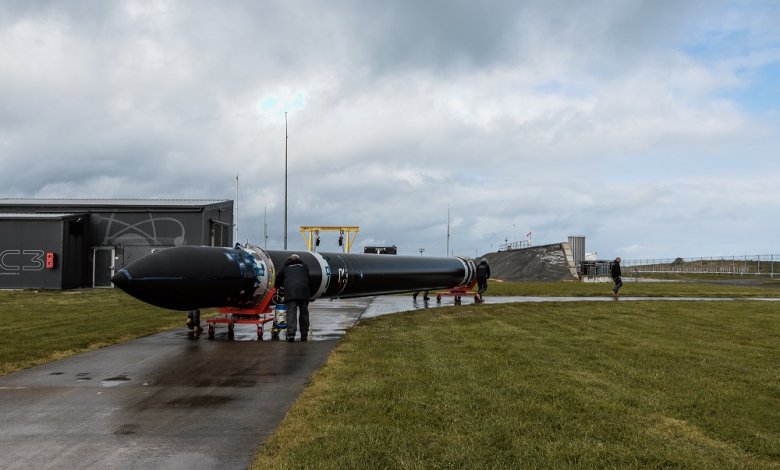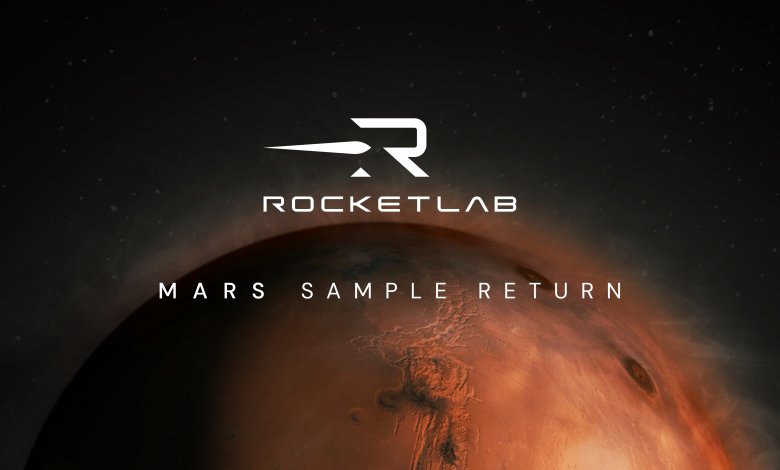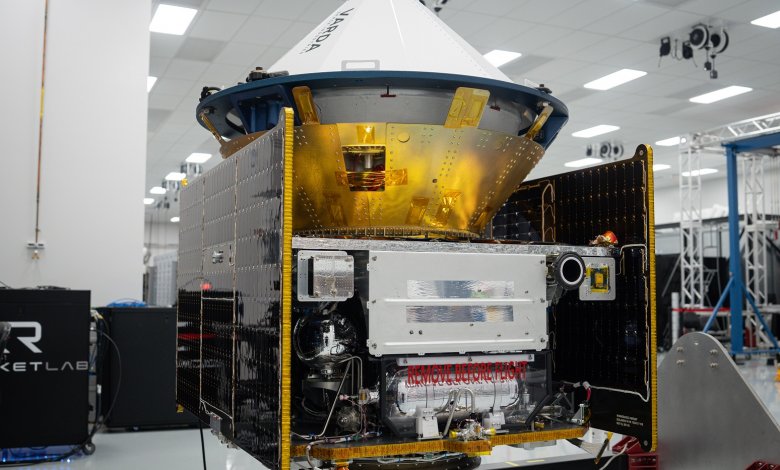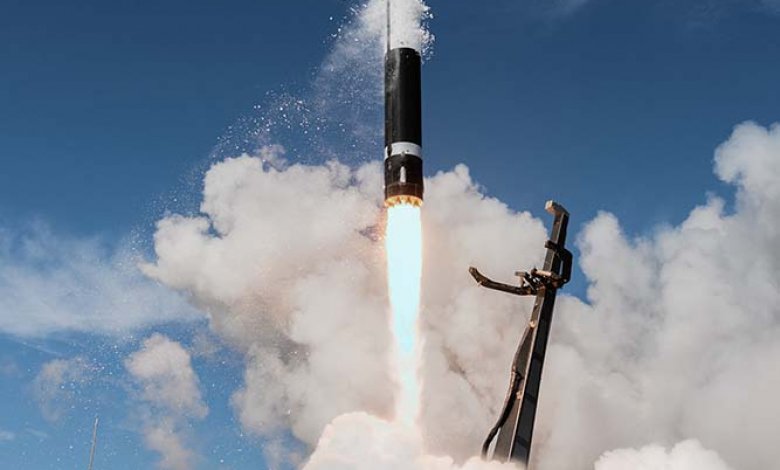Rocket Lab Closes Acquisition Of Space Hardware Company Planetary Systems Corporation
Long Beach, California. 01 December, 2021 – Rocket Lab USA, Inc. (Nasdaq: RKLB) (“Rocket Lab” or “the Company”), a global leader in launch services and space systems, announced today that it has closed the previously-announced transaction to acquire Planetary Systems Corporation (PSC), a Maryland-based spacecraft separation systems company, for $42 million in cash and 1,720,841 shares of the Company’s common stock, plus the potential for an additional 956,023 shares of common stock for a performance earnout based on PSC’s CY 2022 and 2023 financial results. Rocket Lab announced the execution of the agreement to acquire PSC on 15 November, 2021 pending certain closing conditions.
A trusted leader in separation systems and satellite dispensers across the space industry, PSC’s flight-proven, cost-effective, and lightweight hardware streamlines the process of attaching satellites to rockets and releasing them in space while ensuring they’re protected during the journey to orbit. PSC’s products to date have a 100% mission success heritage across more than 100 missions launched with American launch providers including Rocket Lab, SpaceX, United Launch Alliance, Northrop Grumman, and more; NASA Space Shuttle and International Space Station missions; and international launch vehicles operated by Arianespace, the Indian Space Research Organisation (ISRO), the Japan Aerospace Exploration Agency (JAXA), and others.
PSC’s products will become key offerings in Rocket Lab’s vertically-integrated Space Systems division alongside its own in-house manufactured and operated Photon spacecraft line, Maxwell satellite dispensers, satellite components, and mission flight software by Advanced Solutions, Inc (ASI), which recently joined the portfolio through acquisition last month.
The deal also enables PSC to make use of Rocket Lab’s resources and manufacturing capability to grow their already-strong commercial hardware trade and continue serving their existing satellite customers launching spacecraft on other launch vehicles. PSC’s team of 25 people will continue to be led by the company’s President and CEO Mike Whalen in Maryland, with founder Walter Holemans also remaining in his role of Chief Engineer.
Rocket Lab CEO and founder, Peter Beck, says: “Easier and faster access to space relies on proven, affordable hardware being available at scale. By bringing PSC into the fold, Rocket Lab truly simplifies the journey to orbit as a one-stop-shop for a customer’s full mission needs – from launch, spacecraft build and operation with Photon, manufacture of mission-critical components for satellites, flight software, and now, separation systems. We’re thrilled to welcome PSC to the team and further strengthen our position as a leading end-to-end space company.”
PSC Chief Engineer and founder, Walter Holemans, says: “For over 20 years we’ve honed our craft and dedicated ourselves to producing separation systems the satellite community can rely upon, and we’re proud of our strong heritage of 100% mission success across more than 100 missions. We’re excited to build on that distinguished history by joining Rocket Lab and scaling our manufacturing to make our hardware available to support more missions now and long into the future.”
ENDS
Rocket Lab Media Contact
Murielle Baker
media@rocketlabusa.com
About Rocket Lab
Founded in 2006, Rocket Lab is an end-to-end space company with an established track record of mission success. We deliver reliable launch services, spacecraft components, satellites and other spacecraft and on-orbit management solutions that make it faster, easier and more affordable to access space. Headquartered in Long Beach, California, Rocket Lab designs and manufactures the Electron small orbital launch vehicle and the Photon satellite platform and is developing the Neutron 8-ton payload class launch vehicle. Since its first orbital launch in January 2018, Rocket Lab’s Electron launch vehicle has become the second most frequently launched U.S. rocket annually and has delivered 107 satellites to orbit for private and public sector organizations, enabling operations in national security, scientific research, space debris mitigation, Earth observation, climate monitoring, and communications. Rocket Lab’s Photon spacecraft platform has been selected to support NASA missions to the Moon and Mars, as well as the first private commercial mission to Venus. Rocket Lab has three launch pads at two launch sites, including two launch pads at a private orbital launch site located in New Zealand, one of which is currently operational, and a second launch site in Virginia, USA which is expected to become operational by the end of 2021.
Forward-Looking Statements
This press release may contain certain “forward-looking statements” within the meaning of the Private Securities Litigation Reform Act of 1995, Section 27A of the Securities Act of 1933, as amended, and Section 21E of the Securities and Exchange Act of 1934, as amended. These forward-looking statements, including without limitation expectations regarding the benefit of the PSC acquisition, are based on Rocket Lab’s current expectations and beliefs concerning future developments and their potential effects. These forward-looking statements involve a number of risks, uncertainties (many of which are beyond Rocket Lab’s control), or other assumptions that may cause actual results or performance to be materially different from those expressed or implied by these forward-looking statements. Many factors could cause actual future events to differ materially from the forward-looking statements in this press release, including risks related to the global COVID-19 pandemic, including risks related to government restrictions and lock-downs in New Zealand and other countries in which we operate that could delay or suspend our operations; delays and disruptions in expansion efforts; our dependence on a limited number of customers; the harsh and unpredictable environment of space in which our products operate which could adversely affect our launch vehicle and spacecraft; increased congestion from the proliferation of low Earth orbit constellations which could materially increase the risk of potential collision with space debris or another spacecraft and limit or impair our launch flexibility and/or access to our own orbital slots; increased competition in our industry due in part to rapid technological development and decreasing costs; technological change in our industry which we may not be able to keep up with or which may render our services uncompetitive; average selling price trends; failure of our satellites to operate as intended either due to our error in design in production or through no fault of our own; launch schedule disruptions; supply chain disruptions, product delays or failures; design and engineering flaws; launch failures; natural disasters and epidemics or pandemics; changes in governmental regulations including with respect to trade and export restrictions, or in the status of our regulatory approvals or applications; or other events that force us to cancel or reschedule launches, including customer contractual rescheduling and termination rights; risks that acquisitions may not be completed on the anticipated timeframe or at all or do not achieve the anticipated benefits and results; and the other risks detailed from time to time in Rocket Lab’s filings with the Securities and Exchange Commission under the heading “Risk Factors” and elsewhere (including that the impact of the COVID-19 pandemic may also exacerbate the risks discussed therein). There can be no assurance that the future developments affecting Rocket Lab will be those that we have anticipated. Except as required by law, Rocket Lab is not undertaking any obligation to update or revise any forward-looking statements whether as a result of new information, future events or otherwise.








